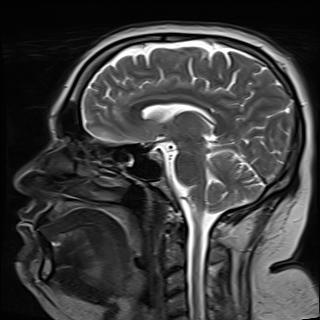Welp, it’s finally happened. Windows 10 has become so bloated, slow, and spooky that I finally have decided to bite the bullet and set up a VM on my linux Mint partition. Do you have any suggestions for a virtual machine? My PC is a relatively basic mid-range business laptop, 8gb of ram, no GPU, only a few years old. I’m a little concerned about performance impact, as I’ve heard that VMs take more system resources than the OS running natively. Any recommendations of software/configurations that would work best for me?
EDIT for clarity: The games i intend to run are, largely, older non-steam games. i obviously just use proton for all my steam games, but some weird older ones don’t have a steam release/i don’t have the steam version.
My suggestion: Don’t.
As far as I am aware a VM only makes sense for gaming if you have a second GPU. And even then it’s a pain in the arse.
Use Proton/Wine instead. Steam has that integrated so that most games just work out of the box.
Be aware, most modern games won’t run well or at all if you only have integrated graphics.
GPU passthrough is possible if you only have one, but it’s TWO pains in the arse to set up and operate
And you kinda lose most of the benefits apart from a little more sandboxing. If you have to log off your whole session to switch to the VM it’s just extra complicated dual booting.
deleted by creator
And most anti-cheates won’t play nice with VMs, unless you’re Nvidia.
VM detection that I’ve run into is not that hard to bypass, but it does subjectively seem to result in a less performant VM (haven’t ran any tests to verify).
Someone can correct me if I’m mistaken, but as far as I can tell VM gaming has become pointless in recent years.
Proton/Wine will let you run almost everything on Linux with the exception of some games with rootkit anti cheats, and you’re likely to be banned if you run the latter in a VM anyway.
Correct. I game a lot and I never have to worry about Linux compatibility anymore.
I game in a Linux VM on Linux
Ladles and jellyspoons of the fediverse, I have reason to suspect Linux may be afoot.
I’ve been a Linux gamer for a few years now. I don’t have Windows at all. Between Steam’s “Steam Play” and Lutris, you can play most games without issue. To find out if the games you want to play will work on Linux, check https://www.protondb.com/ and https://aclist.github.io/. Good luck!
With that kind of hardware, you’re not looking at any gaming in a vm, practically. Since you already have a Mint partition, just use that. Modern Wine will run practically anything that doesn’t have an invasive unsupported anticheat
If you got sick of Windows, what do you expect from running it in a VM? A slow and bloated OS in a VM is still slow and bloated. Probably even slower, because it now runs with more constraints.
Probably that it will be a fresh install with only games installed
I think there a bit of an XY problem here - what software/game do you need to run in the VM?
Most games run fine in Proton (which comes bundled with Steam), and those that block Proton also tend to block VMs.
I wouldn’t virtualize windows with 8gb ram. Also, gaming on a VM normally is not possible, unless you want to pass a GPU to it, which isn’t possible on a laptop. I’d say dual boot. Have a your main linux system where you do your work stuff and a windows one for 2 games that don’t run on linux. Though, unless you play those few games, you’ll probably be fine even without windows, as most games tend to run fine on linux these days.
If you’re a gamer, you might be interested in switching to Bazzite - it’s arguably one of the best distros for gaming right now, so you won’t need to use Windows for the most part (unless you’ve got one of those games which employ invasive (rootkit type) anti-cheat systems - but those wouldn’t let you game in a VM in the first place).
Also, 8GB RAM is a bit on the lower side these days for gaming, if I were you, I’d try to upgrade to at least 16GB, if that’s possible. But it shouldn’t be an issue for older games though.
@bluestarshield Proton and Lutris will serve you just fine. VMs will have their own problems, especially if you are playing multiplayer games. Risk of ban is way higher. Even Geforce Now, a professional service, was having issues with Call of Duty players getting banned just for using the service. Linux with Proton is simply fine.
Wait, I’m confused. You have a Linux Mint partition? Why not just use that?
Don’t bother, VM or wine/proton is not good in term of performance if you don’t have a good hardware (expect 50-80% fps loss), your best option is to dualboot and use Linux for everything except gaming that should free up resources for games on windows (de-bloat is recommended)
*except games that don’t run on proton/wine. I don’t have a Windows installation and I never have to worry about a game not running out of the box on Linux anymore.
Yeah it run and that’s about it
The problem with “de-bloat” (the one I am familiar with, the one Mental Outlaw spotlighted a few years ago) is that it’s deprecated and Microsoft actively works against debloating software. If you’re familiar with some script/software that works in 2024, I’d be glad to hear it.
If you use steam I’d suggest you think about switching to bazzite. It’s made for gaming, and every steam game I’ve tried so far has worked flawlessly. I used to fiddle around with stuff to get some games working on arch, but after switching I was blown away with how easy gaming is on this distro.
Don’t and download https://www.bcuninstaller.com/
To address your edit, you can actually add non-Steam games to Steam. I’ll provide a link that describes the process, but you may have mixed results (though you may be surprised how many of them “just work”):
You’ll find instructions in the section labelled “Can Steam Play be used for games not on Steam?”. I believe these instructions still work, even though they’re a few years old. If not, then there’s always the option to use Lutris or Glorious Eggroll, which I recommend looking into yourself if this solution doesn’t work (Lutris should be pretty easy to set up, so I recommend trying that first as I’ve had a good experience with it).
Install virtual manager (virt-manager) and then reboot.
If you use Windows make sure you install the virtio drivers from the Fedora project











